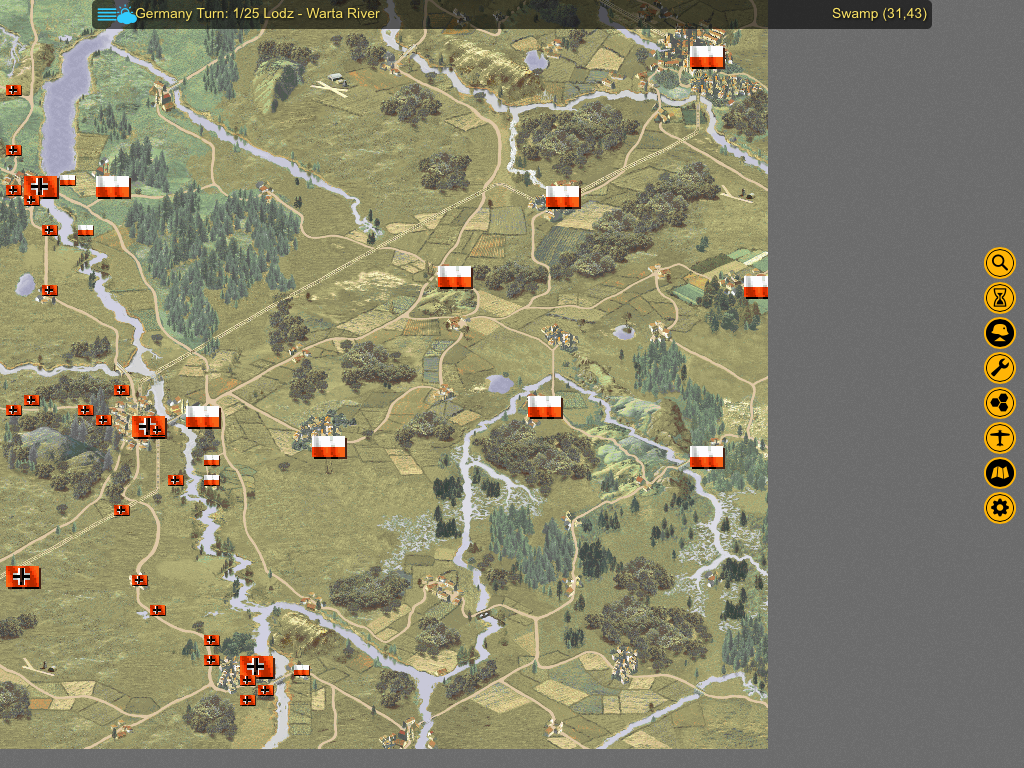

For me, Sid Meier’s Civilization V was one of the highest anticipated games of this year and I was absolutely delighted with the prospect of playing an improved, better version of the legendary franchise that kept me up until late ever since Civ 2 was launched. Am I still delighted with the game’s release or will I switch back to Civilization IV, screaming “I want my money back”? Read on this Civilization 5 review and find out!
One of the first things you’ll notice when starting up the game is the fact that the number of game start-up options are less than in previous games: there’s just a bunch of civilizations you can choose to play as and there’s just one leader for each Civilization. Even more, the bonuses each civilization has to offer don’t seem to be that diverse – and some of them even tend to be worthwhile for the early stages of the game (like the barbarian bonuses). Personally, I would’ve liked to see more diversion and major differences from a civilization to another.
The game itself also appears to be simpler (but, to make things clear, it’s just an illusion): religion has been completely vanquished, the tech tree doesn’t seem to have as many branches anymore and overall, the number of buildings seems to have been diminished (it might be just an illusion, again), while the “power” of the wonders has been tweaked down a little bit. This means that Civilization 5 will now be a game where even the diplomatic players that loved to expand their empires via other means than war will have to focus more on combat to keep things fun.
And combat is indeed one of the biggest changes into good Civilization 5 brings into play: unit stacking is no longer permitted, Cities have their own hit points and can also defend themselves, meaning that you don’t necessary have to keep an unit inside, ranged units can fire one or two hexagons away and much more.
For example, building the more powerful units that require strategic resources (like iron) is not done as it used to be done in Civilization IV. Instead, when you get access to, let’s say, iron, you will only have 3 pieces to spend, meaning that you’ll only be able to buy 3 units that require iron. But losing one of the units gives you back the iron, and you can spend it to build another one. Therefore, you will really have to take all things in account when deciding how to build your army, the general rule of thumb being that it would be best to have fewer really strong units than a lot of weak ones.
City states have also been introduced to add some extra flavor to the game: these are single cities controlled by the AI who are not in the race to win the game. They are of different types (militaristic, economic, cultural and so on) and they can become your friends and even allies, offering you different bonuses (from military units to extra culture in cities), plus quests to keep things interesting, like attacking other city states, building trade routes or even finding specific civilizations. Personally, I liked a lot the introduction of the city states which can become extremely useful in the long run (or completely ignored if you want to).
Civilization 5 went even more RPG-like with the introduction of the policies, similar to the perks in the Fallout series. These can also be used to expand a specific style of play, from the peaceful, one-city-country to expansive strategies. You will probably need a few games under your belt before learning how to use these policies, and they can certainly make a difference in the long run!
The diplomatic section has been also tweaked and there are now a tad more interactions possible with the leaders, but once again every civilization seems to have a tendency to hate you, no matter how many open border treaties, cooperation pacts and other deals you might have. I have always found it at least intriguing in the past games and now diplomatic relationships are even harder to understand, especially since you are no longer told how a specific leader feels about you…
Visually, Civilization 5 has become an eye-candy, but it also proves a bit difficult to get used with: I often find myself trying to see which unit is highlighted and that really hurts your eyes in the long run, some of the improvements are not that easy to see either and the same happens with some of the resources, which kind of drives me mad because it slows me down a lot – but probably once I get used with the new look of Civilization, things will be a little simpler.
When it comes to the sound, I think I liked the one in Civilization IV a lot more. Civilization 5 has a decent soundtrack, but not an enlightening one like that of the previous game. But you can’t have everything perfect!
Conclusion
Even though some of the additions or changes in Civ 5 are strange for a Civilization fanatic and overall the game seems to be a lot simpler, if you give it time and decided to go in depth, you will realize that it has a lot to offer and it indeed is a quality game, a lot better when compared to Civilization IV. Huge replay value, tons of strategies to try out and things to learn, so pick up a copy of the game and start playing. You won’t get bored!
Final rating




 Flower House Cheats & Hack for Coins & Gems - AppGameCheats.com
Flower House Cheats & Hack for Coins & Gems - AppGameCheats.com Mobile Strike Cheats & Hack for Free Gold 2016
Mobile Strike Cheats & Hack for Free Gold 2016 Guess The Caricature Logo Quiz Answers
Guess The Caricature Logo Quiz Answers Open Panzer – Lodz-Warta River Walkthrough
Open Panzer – Lodz-Warta River Walkthrough Zenonia S: Rifts in Time Cheats & Hack for Zens 2016
Zenonia S: Rifts in Time Cheats & Hack for Zens 2016